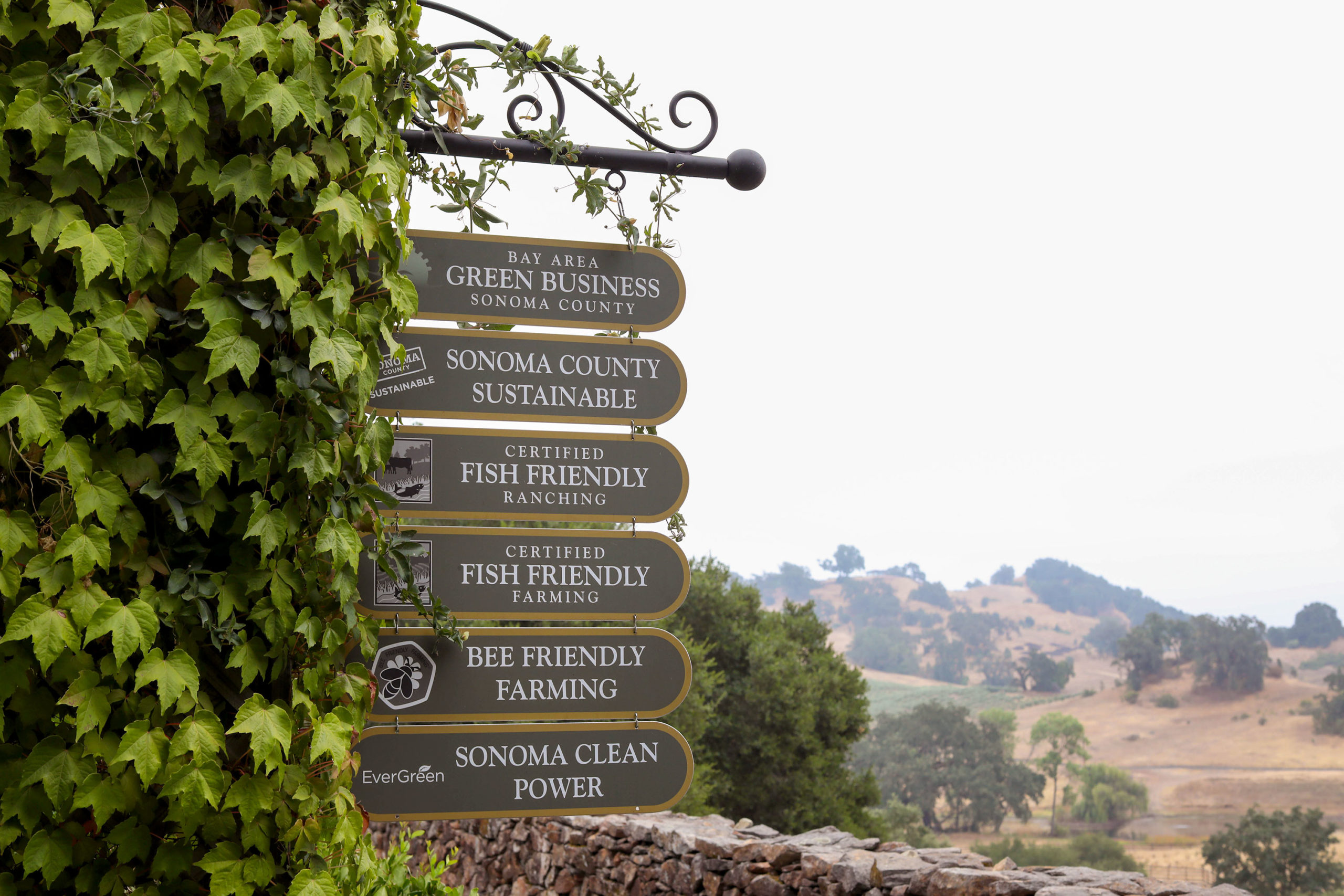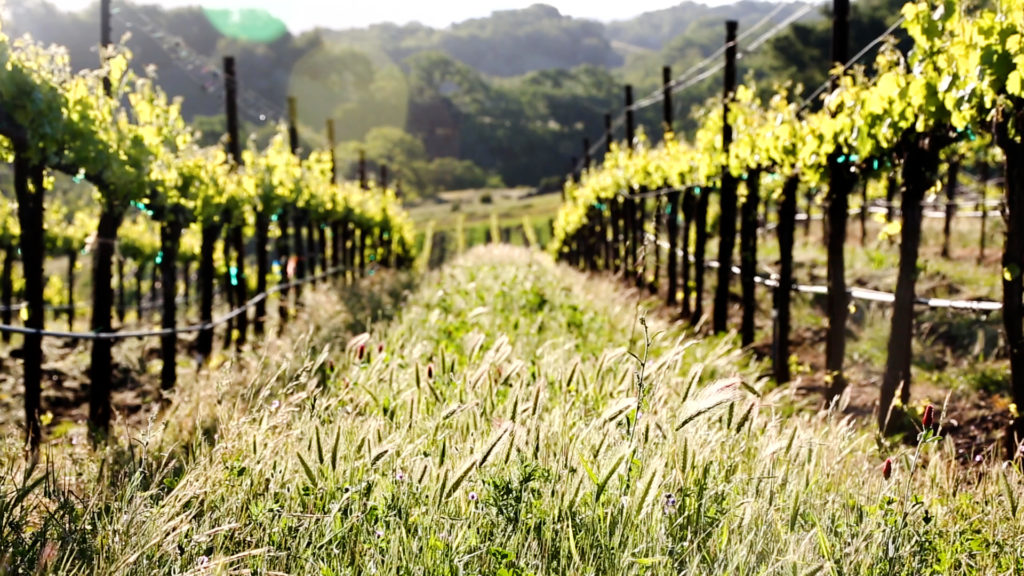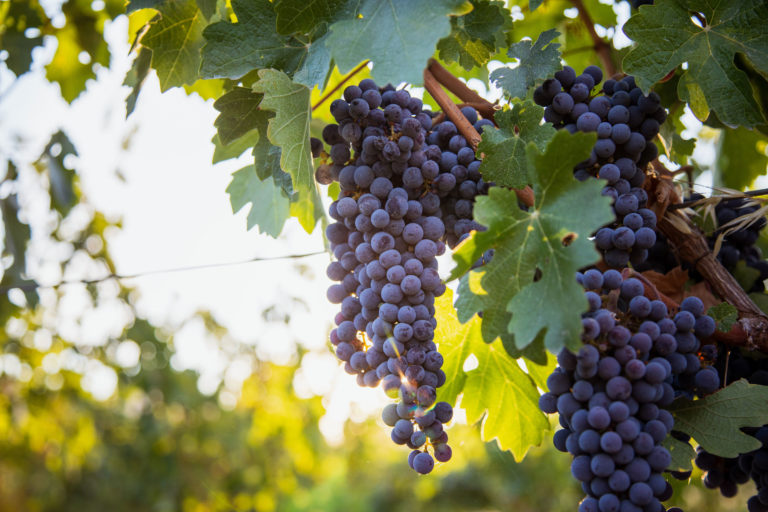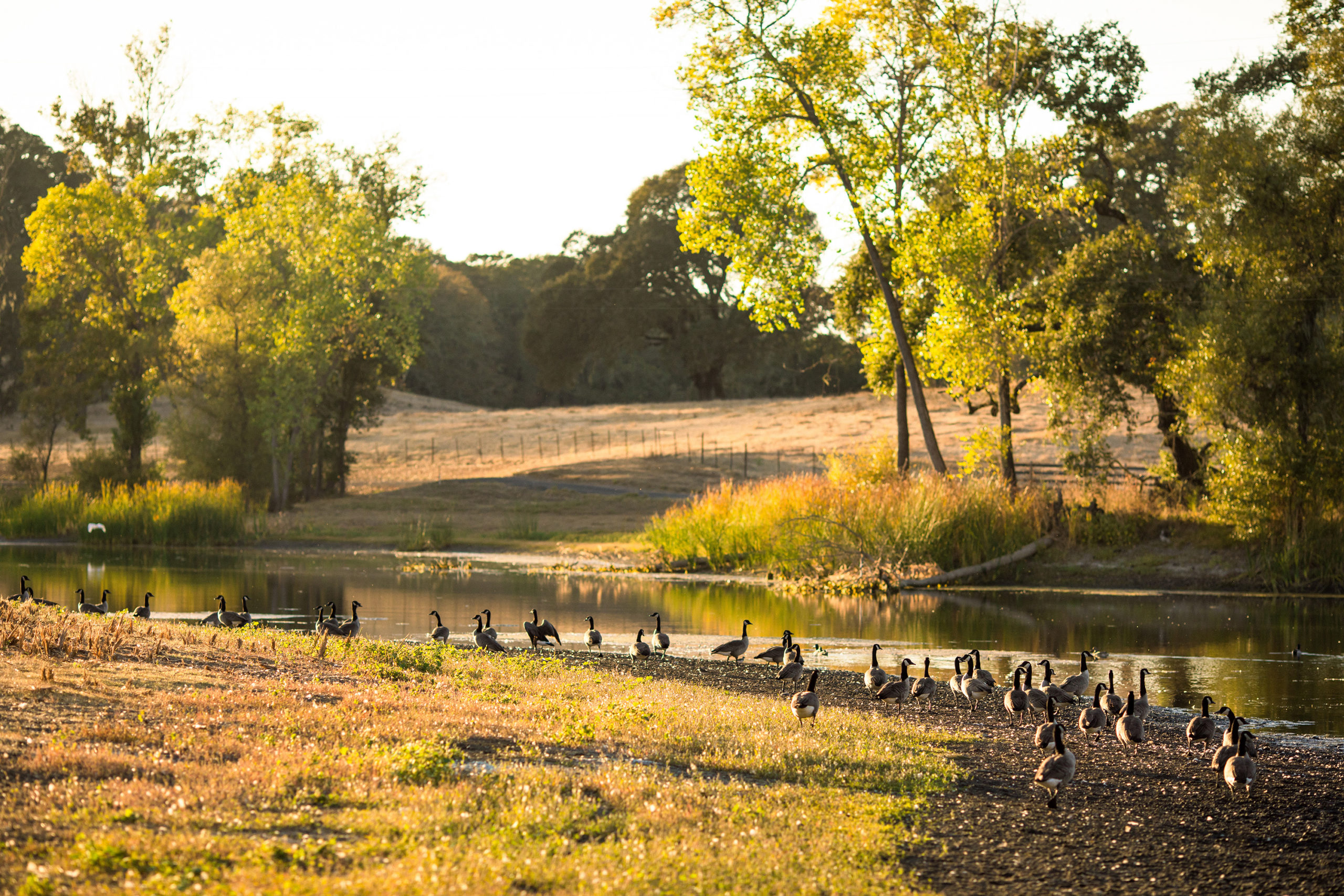
This biodiversity of the estate ecosystem must be respected and nurtured year-round. That is why only 125 acres of grapevines are sparsely planted across the rolling hills of the 1,200-acre Jordan Estate, and more than three-quarters of the land has been left wild. It’s also why we support two lakes, which provide far more benefits to the farm than irrigation water, thanks to the fish and insects that keep the birds and bats nourished. We also encourage pollinator populations with both seasonal and year-round beekeeping and created pollinator sanctuaries across the property in 2021. Our commitment to biodiversity is what makes Jordan not only a special place to grow grapes, but a special place to visit.
Water conservation efforts include using wind machines instead of water for frost protection, adopting evapotranspiration emitters to improve the effectiveness of irrigation with less water, employing targeted irrigation and water-efficient pumps and irrigating grapevines with recycled winery water only when necessary. Multiple electronic devices monitor vineyard blocks and track weather from iPhones, iPads and computers, maximizing the efficiency of irrigation while minimizing the number of times vehicles must enter in the ecosystem. We also practice no-till farming where possible for less disturbance to the soil and less tractor emissions.
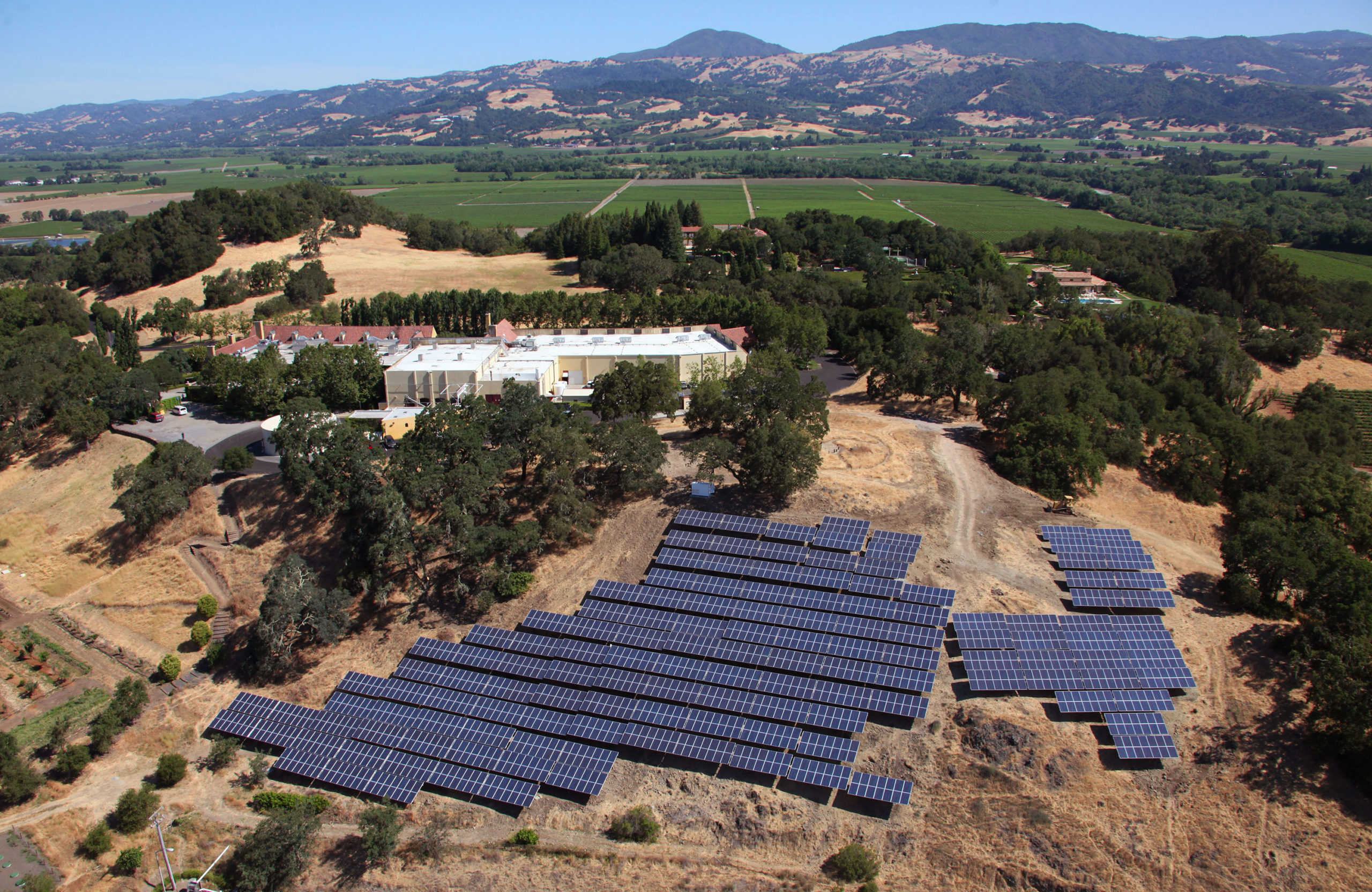
Each year, the energy generated from our hillside solar panels is equivalent to saving nearly 60,000 gallons of gasoline or planting nearly 14,000 trees. The Winery Chateau is fitted with energy-efficient “cool roofs,” refrigeration units, warehouse doors, pre-insulated COOL-FIT® piping systems, USES® Power Shaver technology, EV charging stations and LED lighting—all in the name of conserving energy.
Extensive wastewater reclamation systems have been built to reuse our processed water for landscape and vineyard irrigation. Recycling of various products, such as wine lees, cardboard, glass, plastic and aluminum, is a standard procedure, as is composting in winery kitchens. Efficient generators capture nitrogen from ambient air to reuse as an inert gas during wine bottling. Our herd of cattle graze on grass pastures across the ranch, which cuts back on the carbon emissions of tractors. In 2022, we installed two Enel X JuiceBox (9kW) standard chargers and Two Tesla Wall connectors (10kW) for our guests to utilize during their visit. Both are Level 2 EV Charging Stations outfitted with 25-foot cables. As an independent small business, we’re always looking for new ways to reduce our footprint.
